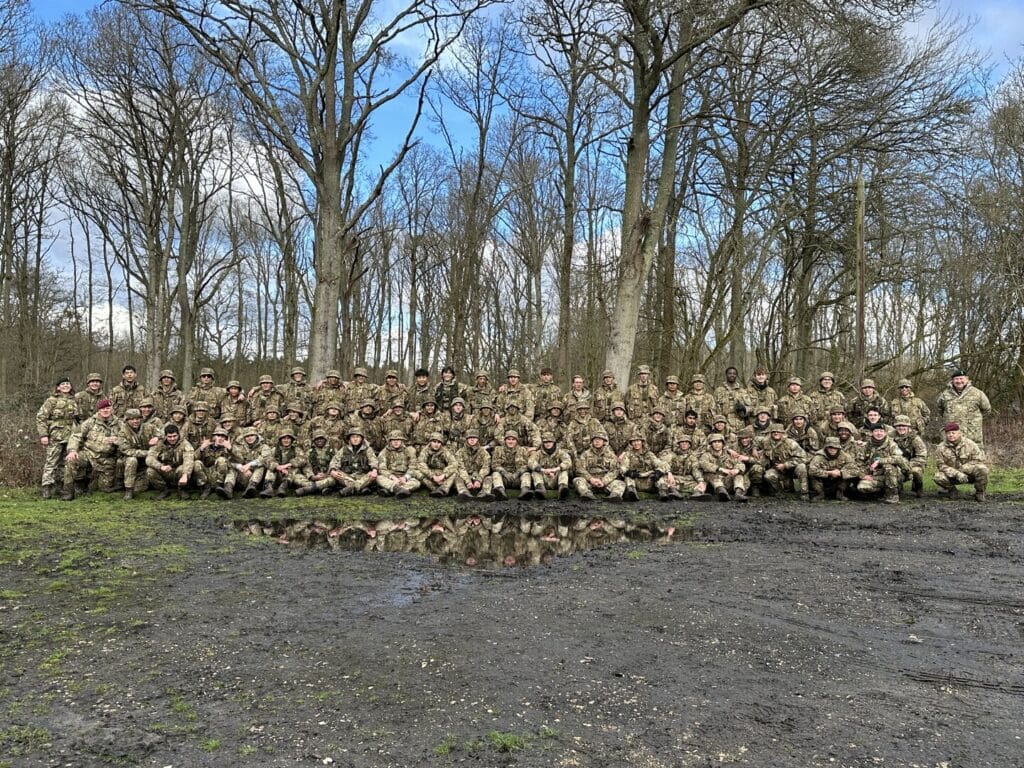Sometimes, it’s all about conversations. Getting the right people together to understand the challenges people are facing, then identifying who has the relevant expertise to help. This is often the making of a successful outreach initiative.
That’s what happened when Nick Roberts at the Windsor Homeless Project had a conversation with Haroon Shirwani, our Eton College Community Engagement (ECCE) lead at the time. Now, the Windsor Homeless Project is using the bespoke relational database we built to measure and improve the impact of their frankly amazing work, enabling homeless and vulnerable people to rebuild their lives.
Back in 2018, like many charities without access to affordable technology solutions, the Windsor Homeless Project worked out of filing cabinets and used clipboards for their daily administration. This presented challenges for the team of volunteers in sharing key data, communicating effectively, and evidencing the impact of the charity’s work. The Windsor Homeless Project is open six days a week across two venues. The volunteers typically welcome 20-30 ‘guests’ to each session where they offer drop-in lunches and provide extensive support to help rebuild lives.
Unsurprisingly, Nick and his team of volunteers want to focus their time and energy on the human side of what they do by helping vulnerable people like Willem and Ricky, rather than wrestling with administration. I can’t imagine they’re the only charity who has faced this issue, but collaborations such as ours can make a real difference with regards to record keeping and efficiency in all areas of the organisation.
As Director of Digital Education at Eton College, I look for ways to broaden the outreach of our digital work – so I was keen to help Nick by providing an efficient and effective database solution to support the charity’s work in the local community. For this pilot project with the Windsor Homeless Project, I began by unpacking the processes they would need and from that I built them a bespoke system using an off-the-shelf database platform. This system not only minimises administration (for example by performing volunteer scheduling) so Nick’s volunteers can get on with the human part of their work unimpeded by technological speedbumps, but it also enhances simple attendance recording by flagging up when a vulnerable person hadn’t visited them in a while, which is potentially life-saving. Nick also uses the database to demonstrate the impact of their work to trustees and the Royal Borough of Windsor.
Fundamentally, the system changed the way we work and that has been a huge benefit in terms of how the charity has moved forward. Being able to collate data on our guests to evidence the work we do is crucial for winning grants which provide funds for WHP to remain open, and also helps track progress or issues of guests which for myself and colleagues has been a game changer.
Nick Roberts, Project Manager at Windsor Homeless Project
With the pilot project a success, Eton pupils in Years 10 and 11 subsequently came on board to help develop a bespoke database for Family Friends, a local charity which does remarkable work to help families facing difficult times. These include army families and single parents, who might be referred by their GP or Health Visitor or can also self-refer, as well as all the other people who benefit from their anxiety and support groups.
James and the boys have never ceased to amaze us with their talent and nothing has been too much trouble for them – this has made such a difference to us, helping our processes run more efficiently and avoiding duplication.
Tracy Muschamp, Director of Services at Family Friends
The pupils and I interviewed Tracy and Kerry at Family Friends, following a similar process to the one I had used in the pilot project as we identified and designed their requirements in a new database system. Then came a platform design and testing process.
Interestingly, perhaps five (and certainly ten) years ago, a system like the one we implemented would have been highly complex and costly to build, and would have required bespoke development work, but recent technological shifts meant we could create a sophisticated system without building it from the ground up with custom code. The platform we built has an easy to use front-end, which was vital for the staff at Family Friends to get the most out of it without getting bogged down by overly complex technology, and a powerful backend that would give them all the tools they required. Going forwards, it is also very easy for them to maintain, adapt, and develop as their needs evolve.
It has been fantastic to work with James and his pupils and see the database develop into something which is so user friendly whilst accommodating the different services we offer and some of the complexities around this.
Tracy Muschamp
An extremely eye-opening and rewarding process, I hope that this blog post serves to spark ideas in the minds of teachers and pupils in other schools to explore ways in which they might collaborate with the charities in their local area, in particular by offering technology-related support. Our experience has also shown that this is an excellent way for pupils and staff to gain a much deeper understanding of the work done by charities, as well as an insight into their organisation, staffing and wider interaction within the local community.



